
Abraham Geiger was a German rabbi and scholar who is considered the founding father of Reform Judaism. Emphasizing Judaism's constant development through its history and universalist traits, Geiger sought to re-formulate received forms and design what he regarded as a religion compliant with modern times.
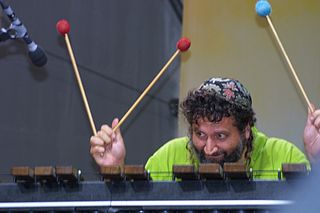
Alex Jacobowitz is a classically trained concert artist and street performer who plays the marimba and xylophone.
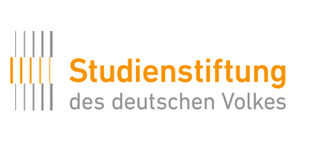
The German Academic Scholarship Foundation is Germany's largest and most prestigious scholarship foundation. According to its statutes, it supports "the university education of young people who, on account of their exceptional academic or artistic talents and their personalities, can be expected to make an outstanding contribution to society as a whole". The Studienstiftung is non-political, non-denominational and ideologically independent. Its headquarters are located in Bonn; it also has an office in Berlin. The current president is University of Bonn director Michael Hoch, and its patron (Schirmherr) is the President of Germany, Frank-Walter Steinmeier.

Alexander (Alex) Beer was a German architect.

The Friedrich Ebert Foundation is a German political party foundation associated with, but independent from, the Social Democratic Party of Germany (SPD). Established in 1925 as the political legacy of Friedrich Ebert, Germany's first democratically elected President, it is the largest and oldest of the German party-associated foundations. It is headquartered in Bonn and Berlin, and has offices and projects in over 100 countries. It is Germany's oldest organisation to promote democracy, political education, and promote students of outstanding intellectual abilities and personality.

Rykestrasse Synagogue, Germany's largest synagogue, is located in the Prenzlauer Berg neighbourhood in the Pankow borough of Berlin. Johann Hoeniger built the synagogue in 1903/1904. It was inaugurated on 4 September 1904, in time for the holidays of and around Rosh Hashanah. The synagogue stands off the street alignment and is reached by a thoroughfare in the pertaining front building.
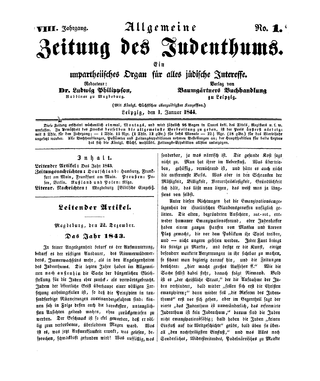
Allgemeine Zeitung des Judentums was a Jewish German magazine devoted to Jewish interests, founded in 1837 by Ludwig Philippson (1811–89), published first in Leipzig and later in Berlin. In 1860 it had a circulation of approximately 1,500. It was read not only in Germany, Austria, and the Netherlands but also in Eastern Europe, and continued to appear until 1922.

Louis Sussmann-Hellborn, also spelled Ludwig Sussman Hellborn, was a German sculptor, painter, art collector and contractor.

Arno Nadel was a Lithuanian musicologist, composer, playwright, poet, and painter.
Guy Katz is a German professor, writer, TEDx speaker, and businessman.

Hermann Simon is a German historian who was for 27 years director of the Foundation "New Synagogue Berlin - Centrum Judaicum".

Sylke Tempel was a German author and journalist. At the time of her death, she had been the editor-in-chief of the foreign policy magazine Internationale Politik since 2008.
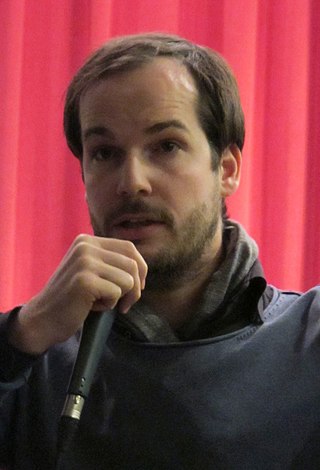
Max Czollek is a German writer, lyric-poet, stage performer and curator. He is a member of the "G13" authors' collective.
Arnold Paucker, OBE was a Jewish German-English historian. He was the long-time editor of the Leo Baeck Institute Year Book, published by the Leo Baeck Institute London.
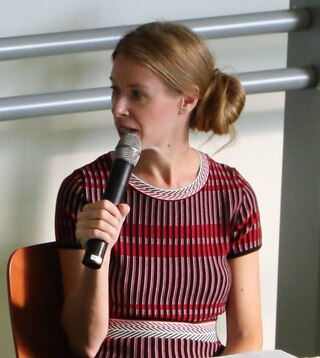
Tina Frühauf is a German-American musicologist. She is adjunct associate professor at Columbia University in New York and serves on the doctoral faculty of the Graduate Center, CUNY. She is Executive Director of Répertoire International de Littérature Musicale. In January 2023, Frühauf was named director of the Barry S. Brook Center for Research and Documentation at the CUNY Graduate Center. Tina Frühauf serves on the board of the DAAD Alumni Association of the US

Sergey Lagodinsky is a German lawyer and politician of the Alliance 90/The Greens who has been serving as a Member of the European Parliament since 2019.

Salomo Sachs was a Jewish Prussian architect, astronomer, Prussian building official, mathematician, drawing teacher for architecture, teacher for machine drawings, building economist, writer, author of non-fiction and textbooks and universal scholar. He attained the rank of a royal building inspector and with his cousin Major Meno Burg they were the only men in the Prussian civil service who had not renounced their Jewish faith.
Inge Lammel, née Rackwitz was a German women musicologist, which dealt mainly with industrial folk music. She fled to Great Britain as a Jew in 1939 and became known for her work on the persecution of the Jews during the period of National Socialism in Berlin-Pankow.
The German-Israeli Future Forum Foundation is a charitable foundation based in Berlin. It was founded in 2007 by the Federal Republic of Germany and the State of Israel. It acts as a funding body and is directly involved in project implementation. The principal goal of the foundation is to promote German-Israeli cooperation. In the long term, this aim is realized chiefly through the following programs: project funding, the German-Israeli Future Network, the Sylke Tempel Fellowship and the Shimon Peres Prize.

Fritz Bleichröder was a German Jewish physician, best remembered for his research and experiments with catheters and cardiac catheterization alongside Werner Forssmann and Ernst Unger. He was a nephew of Gerson von Bleichröder.
















